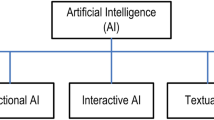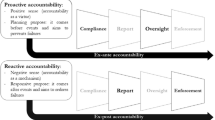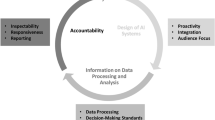Abstract
Ambient Intelligence environments host various agents that collect, process, change and share the available context information. The imperfect nature of context, the open and dynamic nature of such environments and the special characteristics of ambient agents have introduced new research challenges in the study of Distributed Artificial Intelligence. This paper proposes a solution based on the Multi-Context Systems paradigm, according to which local knowledge of ambient agents is encoded in rule theories (contexts), and information flow between agents is achieved through mapping rules that associate concepts used by different contexts. To resolve potential inconsistencies that may arise from the interaction of contexts through their mappings (global conflicts), we use a preference ordering on the system contexts, which may express the confidence that an agent has in the knowledge imported by other agents. On top of this model, we have developed four alternative strategies for global conflicts resolution, which mainly differ in the type and extent of context and preference information that is used to resolve potential conflicts. The four strategies have been respectively implemented in four versions of a distributed algorithm for query evaluation and evaluated in a simulated P2P system.
Similar content being viewed by others
References
Adjiman P, Chatalic P, Goasdoue F, Rousset M-C, Simon L (2006) Distributed reasoning in a peer-to-peer setting: application to the semantic web. J Artif Intell Res 25: 269–314
Agostini A, Bettini C, Riboni D (2005) Loosely coupling ontological reasoning with an efficient middleware for context-awareness. In: Proceedings of MobiQuitous 2005, pp 175–182
Antoniou G, Billington D, Governatori G, Maher M (2006) Embedding defeasible logic into logic programming. Theory Pract Log Program 6(6): 703–735
Antoniou G, Billington D, Governatori G, Maher MJ (2001) Representation results for defeasible logic. ACM Trans Comput Log 2(2): 255–287
Bernstein PA, Giunchiglia F, Kementsietsidis A, Mylopoulos J, Serafini L, Zaihrayeu I (2002) Data management for peer-to-peer computing: a vision. In: WebDB, pp 89–94
Bikakis A, Patkos T, Antoniou G, Plexousakis D (2008) A survey of semantics-based approaches for context reasoning in ambient intelligence. In: Mühlhäuser M, Ferscha A, Aitenbichler E (eds) Constructing ambient intelligence, communications in computer and information science. Springer, Berlin, pp 14–23
Binas A, McIlraith SA (2007) Exploiting preferences over information sources to efficiently resolve inconsistencies in peer-to-peer query answering. In: AAAI 2007 workshop on preference handling for artificial intelligence
Brewka G, Roelofsen F, Serafini L (2007) Contextual default reasoning. In: IJCAI, pp 268–273
Buvac S, Mason IA (1993) Propositional logic of context. In: AAAI, pp 412–419
Calvanese D, De Giacomo G, Lembo D, Lenzerini M, Rosati R (2005) Inconsistency tolerance in P2P data integration: an epistemic logic approach. In: DBPL-05, 3774 of LNCS, SV, pp 90–105
Calvanese D, De Giacomo G, Lenzerini M, Rosati R (2004) Logical foundations of peer-to-peer data integration. ACM, New york, pp 241–251
Casali A, Godo L, Sierra C (2008) A logical framework to represent and reason about graded preferences and intentions. In: KR, pp 27–37
Chatalic P, Nguyen GH, Rousset M-C (2006) Reasoning with inconsistencies in propositional peer-to-peer inference systems. In: ECAI, pp 352–356
Chen H, Finin T, Joshi A (2003) Semantic web in a pervasive context-aware architecture. Artif Intell Mob Syst 2003, 33–40
Cristani M, Burato E (2009) Approximate solutions of moral dilemmas in multiple agent system. Knowl Inf Syst 18(2): 157–181
Dastani M, Governatori G, Rotolo A, Song I, van der Torre L (2007) Contextual deliberation of cognitive agents in defeasible logic. In: AAMAS, p 148
Forstadius J, Lassila O, Seppanen T (2005) RDF-based model for context-aware reasoning in rich service environment. In: PerCom 2005 workshops, pp 15–19
Franconi E, Kuper GM, Lopatenko A, Serafini L (2003) A robust logical and computational characterisation of peer-to-peer database systems. In: DBISP2P, pp 64–76
Gandon FL, Sadeh NM (2004) Semantic web technologies to reconcile privacy and context awareness. J Web Semant 1: 241–260
Ghidini C, Giunchiglia F (2001) Local models semantics, or contextual reasoning = locality + compatibility. Artif Intell 127(2): 221–259
Giunchiglia F, Serafini L (1994) Multilanguage hierarchical logics, or: how we can do without modal logics. Artif Intell 65(1): 29–70
Gong L (2001) JXTA: a network programming environment. IEEE Internet Comput 5(3): 88–95
Governatori G, Maher MJ, Antoniou G, Billington D (2004) Argumentation semantics for defeasible logic. J Log Comput 14(5): 675–702
Gu T, Pung HK, Zhang DQ (2004) A middleware for building context-aware mobile services. In: Proceedings of the IEEE vehicular technology conference (VTC 2004). Milan, Italy
Halevy AY, Ives ZG, Suciu D, Tatarinov I (2003) Schema mediation in peer data management Systems. In: ICDE, p 505
Hatala M, Wakkary R, Kalantari L (2005) Ontologies and rules in support of real-time ubiquitous application. J Web Semant, Special Issue on “Rules and ontologies for Semantic Web” 3(1) 5–22 (2004)
Henricksen K, Indulska J (2004) Modelling and using imperfect context information. In: Proceedings of PERCOMW ’04’. IEEE Computer Society, Washington, DC, pp. 33–37
Khushraj D, Lassila O, Finin T (2004) sTuples: semantic tuple spaces. In: First annual international conference on mobile and Ubiquitous systems: networking and services (MobiQuitousć604), pp 267–277
Kofod-Petersen A, Mikalsen M (2005) Representing and reasoning about context in a mobile environment. Revue d’Intelligence Artificielle 19(3): 479–498
Korpipaa P, Mantyjarvi J, Kela J, Keranen H, Malm E-J (2003) Managing context information in mobile devices. IEEE Pervasive Comput 02(3): 42–51
Krummenacher R, Kopecký J, Strang T (2005) Sharing context information in semantic spaces. In: OTM workshops, pp 229–232
Maher MJ (2002) A model-theoretic semantics for defeasible Logic. In: Paraconsistent computational logic, pp 67–80
McCarthy J (1987) Generality in artificial intelligence. Commun ACM 30(12): 1030–1035
McCarthy J, Buvač S (1998) Formalizing context expanded notes. In: Aliseda A, Glabbeek R, Westerståhl D (eds) Computing natural language. CSLI Publications, Stanford California, pp 13–50
Nguyen NT, Katarzyniak R (2009) Actions and social interactions in multi-agent systems. Knowl Inf Syst 18(2): 133–136
Nute D (1997) Defeasible deontic logic. Kluwer, Chapter Apparent Obligation, pp 288–315
Nute D (2001) Defeasible logic. In: Proceedings of the 14th international conference on applications of Prolog, pp 87–114
Patkos T, Bikakis A, Antoniou G, Plexousakis D, Papadopouli M (2007) A semantics-based framework for context-aware services: lessons learned and challenges. In: Proceedings of 4th international conference on Ubiquitous intelligence and computing (UIC-2007), Vol. 4611 of LNCS, Springer, pp 839–848
Ranganathan A, Campbell RH (2003) An infrastructure for context-awareness based on first order logic. Pers Ubiquitous Comput 7(6): 353–364
Resconi G, Kovalerchuk B (2009) Agents’ model of uncertainty. Knowl Inf Syst 18(2): 213–229
Roelofsen F, Serafini L (2005) Minimal and absent information in contexts. In: IJCAI, pp 558–563
Sabater J, Sierra C, Parsons S, Jennings NR (2002) Engineering executable agents using multi-context systems. J Log Comput 12(3): 413–442
Serafini L, Bouquet P (2004) Comparing formal theories of context in AI. Artif Intell 155(1–2): 41–67
Sinner A, Kleemann T, von Hessling A (2004) Semantic user profiles and their applications in a mobile environment. In: Artificial intelligence in mobile systems 2004
Toninelli A, Montanari R, Kagal L, Lassila O (2006) A semantic context-aware access control framework for secure collaborations in pervasive computing environments. In: Proceedings of 5th international semantic web conference, pp 5–9
Turhan A-Y, Springer T, Berger M (2006) Pushing doors for modeling contexts with OWL DL a case study. In: ‘PERCOMW ’06: Proceedings of the 4th annual IEEE international conference on Pervasive Computing and Communications Workshops’, IEEE Computer Society, Washington, DC
Wang XH, Dong JS, Chin CY, Hettiarachchi SR, Zhang D (2004) Semantic space: an infrastructure for smart spaces. IEEE Pervasive Comput 3(3): 32–39
Wang XH, Zhang DQ, Gu T, Pung HK (2004) Ontology based context modeling and reasoning using OWL. In: ‘PERCOMW ’04: proceedings of the second IEEE Annual conference on pervasive computing and communications workshops’, IEEE Computer Society, Washington, DC, p 18
Author information
Authors and Affiliations
Corresponding author
Rights and permissions
About this article
Cite this article
Bikakis, A., Antoniou, G. & Hasapis, P. Strategies for contextual reasoning with conflicts in ambient intelligence. Knowl Inf Syst 27, 45–84 (2011). https://doi.org/10.1007/s10115-010-0293-0
Received:
Revised:
Accepted:
Published:
Issue Date:
DOI: https://doi.org/10.1007/s10115-010-0293-0




